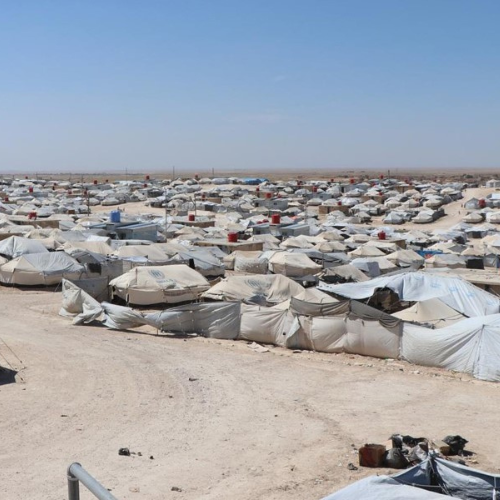A Syrian official has recently voiced serious concerns about the growing number of refugees entering Syria due to ongoing military actions in Lebanon. These events have created a challenging situation for Syria, which is already struggling with the effects of international sanctions. The official urged the global community to take immediate action to remove these sanctions and allow humanitarian aid to flow into the country.
The Impact of Ongoing Conflicts
The situation in Lebanon has escalated, particularly with military operations that have affected many people living there. Alaa al-Sheikh, a member of the executive office in Rural Damascus Province, stated that the current state of affairs is alarming. He expressed uncertainty about how long this crisis could last, which adds to the strain on Syria’s already limited resources.
Syria has been suffering from the impacts of years of war and conflict. The ongoing Israeli military operations have caused many people to flee their homes, adding to the burden of those already in Syria. Al-Sheikh explained that the influx of refugees from Lebanon is making it even harder for Syria to provide basic services and support its population.
He specifically called on the international community to act quickly to lift the sanctions imposed on Syria. These sanctions include the Caesar Act, a U.S. law that began in 2020. This law was created to punish the Syrian government for alleged war crimes against its own people. However, the sanctions have crippled Syria’s economy, making it nearly impossible for the country to obtain necessary supplies for its people.
Refugee Influx Strains Resources
The statistics surrounding the number of refugees entering Syria are shocking. Since September 24, around 386,000 individuals have crossed the border into Syria from Lebanon. This group includes approximately 125,000 Lebanese citizens and 261,000 Syrians. Most of these refugees have settled in areas such as the countryside of Damascus, Homs, and Tartus.
The sudden surge in population is straining Syria’s ability to provide for its own people. The country is still trying to recover from years of conflict, and now it faces an even greater challenge with the arrival of so many refugees. Al-Sheikh’s plea highlights the urgent need for international support, especially to help meet the humanitarian needs of these newly arrived individuals.
U.S. Sanctions Syrian Shipping Tycoon and Chinese Firms in Crackdown on Iran and Hezbollah
To address the needs of these refugees, the Syrian government has taken steps to prepare for their arrival. Louay Khareta, the Minister of Local Administration and Environment, announced the opening of 20 new shelters to accommodate the incoming refugees. This is an important step, but the question remains whether these facilities will be enough to handle the overwhelming number of people.
The Syrian Health Ministry has also reported that it has provided a remarkable 42,671 free medical services to those arriving from Lebanon. This is a critical support system for the refugees, as many may be in need of medical attention due to the conditions they fled. The services offered include general medical care, emergency procedures, surgeries, and even mental health support.
Additionally, the Health Ministry is providing vaccinations for children and tetanus shots for women of reproductive age. These health services are vital in ensuring that refugees do not face further health crises as they settle into their new surroundings.
The Need for Humanitarian Aid
Despite the efforts being made by the Syrian government and health authorities, the situation remains precarious. The official Alaa al-Sheikh emphasized the dire need for humanitarian aid to flow freely into Syria. He pointed out that lifting the Caesar Act would allow much-needed food, medical supplies, and other essential resources to reach those in need.
Many families are arriving in Syria with nothing but the clothes on their backs. The lack of resources is not just a challenge for the government but also for the communities that are hosting these refugees. With Syria already facing a shortage of basic supplies, the additional strain from the influx of refugees could lead to a humanitarian disaster.
The situation calls for urgent attention from the international community. As the conflict in Lebanon continues and the number of refugees grows, there is a pressing need for action to alleviate the suffering of these people. The call to lift sanctions is a crucial step toward ensuring that Syria can adequately respond to the needs of both its citizens and the newly arrived refugees.
The current crisis highlights the interconnectedness of regional conflicts and the need for global cooperation in addressing humanitarian challenges. As Syria grapples with this growing refugee situation, the plea for lifting sanctions becomes even more critical. The voices of officials like Alaa al-Sheikh serve as a reminder of the urgent need for support and aid in a time of crisis.



